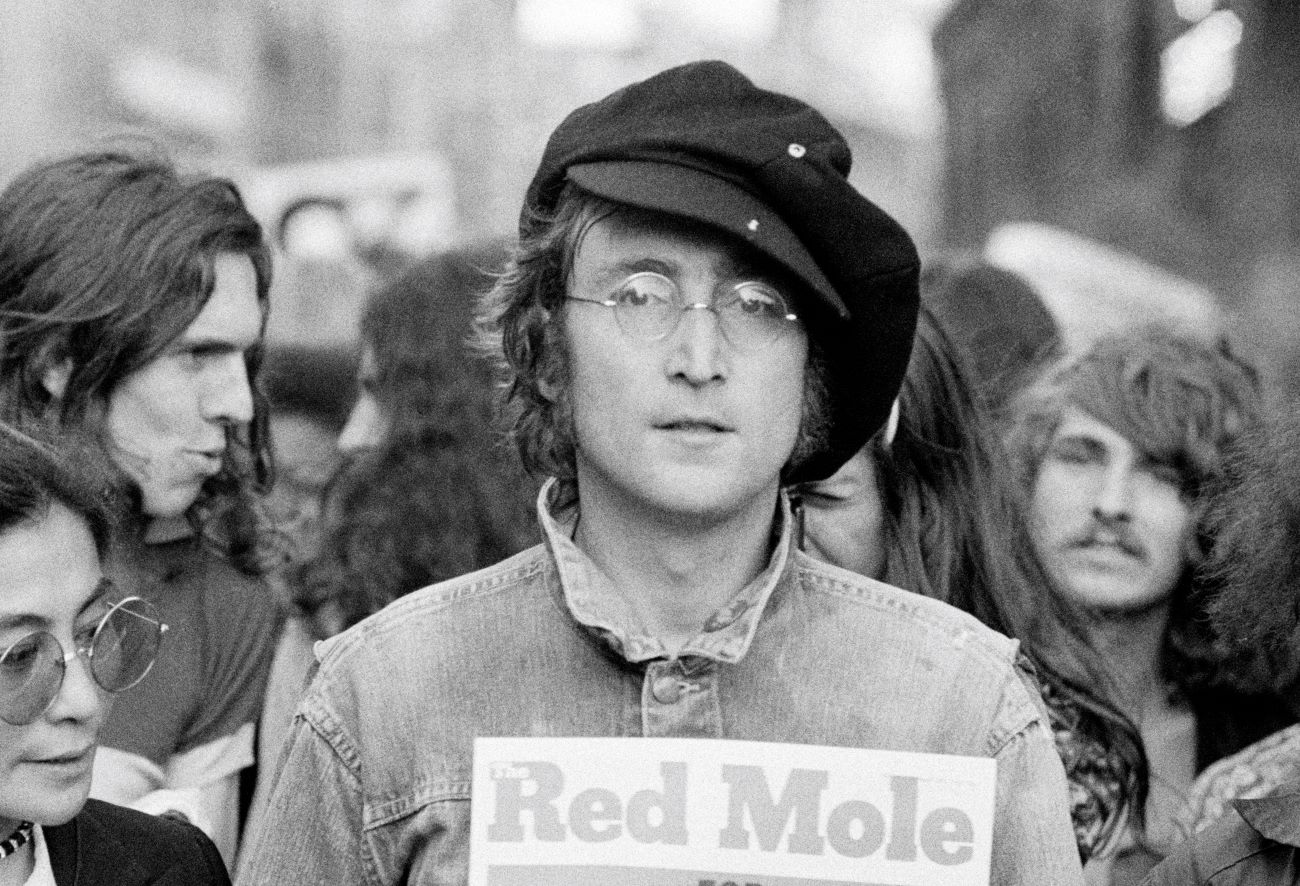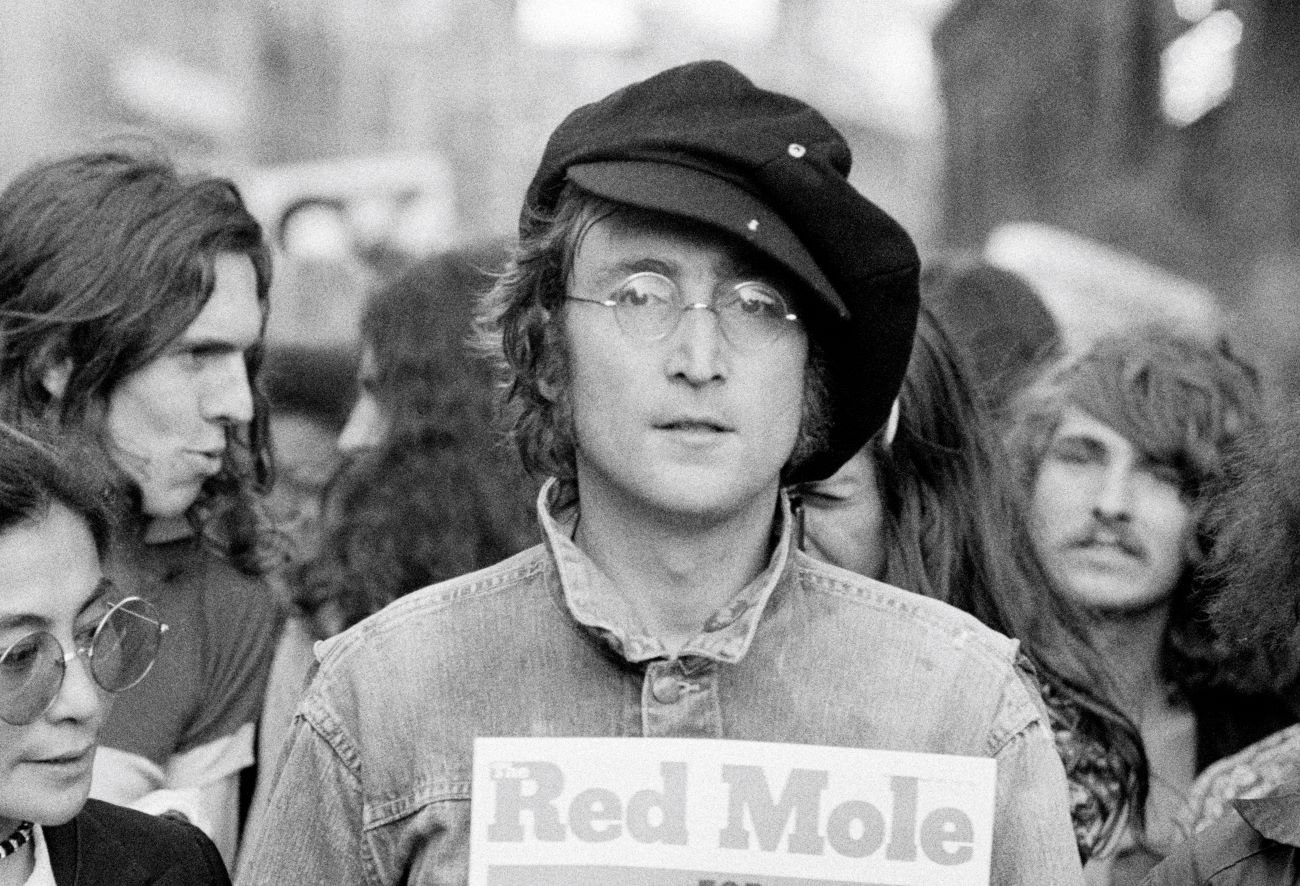
John Lennon Said Political Messaging ‘Almost Ruined’ His Music
After The Beatles broke up, John Lennon made it a point to include more political messaging in his music. He and Yoko Ono were antiwar advocates, and he wanted his songs to reflect this. He said he wanted to write something meaningful, unlike The Beatles’ music. Five years into his solo career, though, Lennon said that writing politics into his music had nearly ruined it.

He once said The Beatles wrote meaningless music
After The Beatles broke up, the band’s former members began releasing solo albums. Lennon wanted to set himself apart from his bandmates, particularly Paul McCartney.
“John immediately went into his home recording studio, even though it was still under construction, to make a new solo album, Imagine, which he hoped would show the world where he stood in relation to the solo albums of Paul McCartney,” Lennon’s girlfriend May Pang wrote in the book Loving John.
He wanted his music to be more successful than McCartney’s, but he also wanted to imbue it with more meaning than The Beatles’ songs.
“It would make a meaningful statement and not be wallpaper music — the term John and Yoko used to describe the music of The Beatles,” Pang wrote. “He was also determined that it be more successful than McCartney’s solo albums.”
John Lennon said political messaging was detrimental to his music
Five years later, though, Lennon had a different opinion. In a 1975 interview with Rolling Stone, Lennon said that when he moved to New York, activists Jerry Rubin and Abbie Hoffman contacted him. According to him, this was why he became more politically involved.
“It’s those two famous guys from America who’s callin: ‘Hey, yeah, what’s happenin’, what’s go-in’ on? …’ And the next thing you know I’m doin’ John Sinclair benefits and one thing and another,” Lennon said. “I’m pretty movable, as an artist, you know. They almost greeted me off the plane and the next minute I’m involved, you know.”
He wanted to move away from that because he believed it negatively affected his work.
“It almost ruined it, in a way,” he said. “It became journalism and not poetry. And I basically feel that I’m a poet. Even if it does go ba-deedle, eedle, eedle, it, da-deeedle, deedle, it. I’m not a formalized poet, I have no education, so I have to write in the simplest forms usually. And I realized that over a period of time – and not just ’cause I met Jerry Rubin off the plane – but that was like a culmination. I realized that we were poets but we were really folk poets, and rock & roll was folk poetry – I’ve always felt that.”
Lennon didn’t want to involve himself with any causes.
“Whether it’s a religious hat or a political hat or a no-political hat: whatever hat it was, always looking for these straw hats,” he said. “I think I found out it’s a waste of time. There is no hat to wear. Just keep moving around and changing clothes is the best. That’s all that goes on: change.”
John Lennon thought one political song was particularly embarrassing
His political music performed well, but Lennon still wanted to move away from it. He said he found the song “Power to the People” particularly embarrassing.
“We’d got a bit of a reputation from hanging out with the Cambridge Graduate School of Revolutionaries in the UK,” Lennon wrote in the book Skywriting by Word of Mouth. “They made us feel so guilty for not hating everyone who wasn’t poor that I even wrote and recorded the rather embarrassing ‘Power to the People’ ten years too late (as the now-famous Hunter ‘Fear and Loathing for a Living’ Thomas pointed out in his Vegas book). We kept the royalties, of course.”


